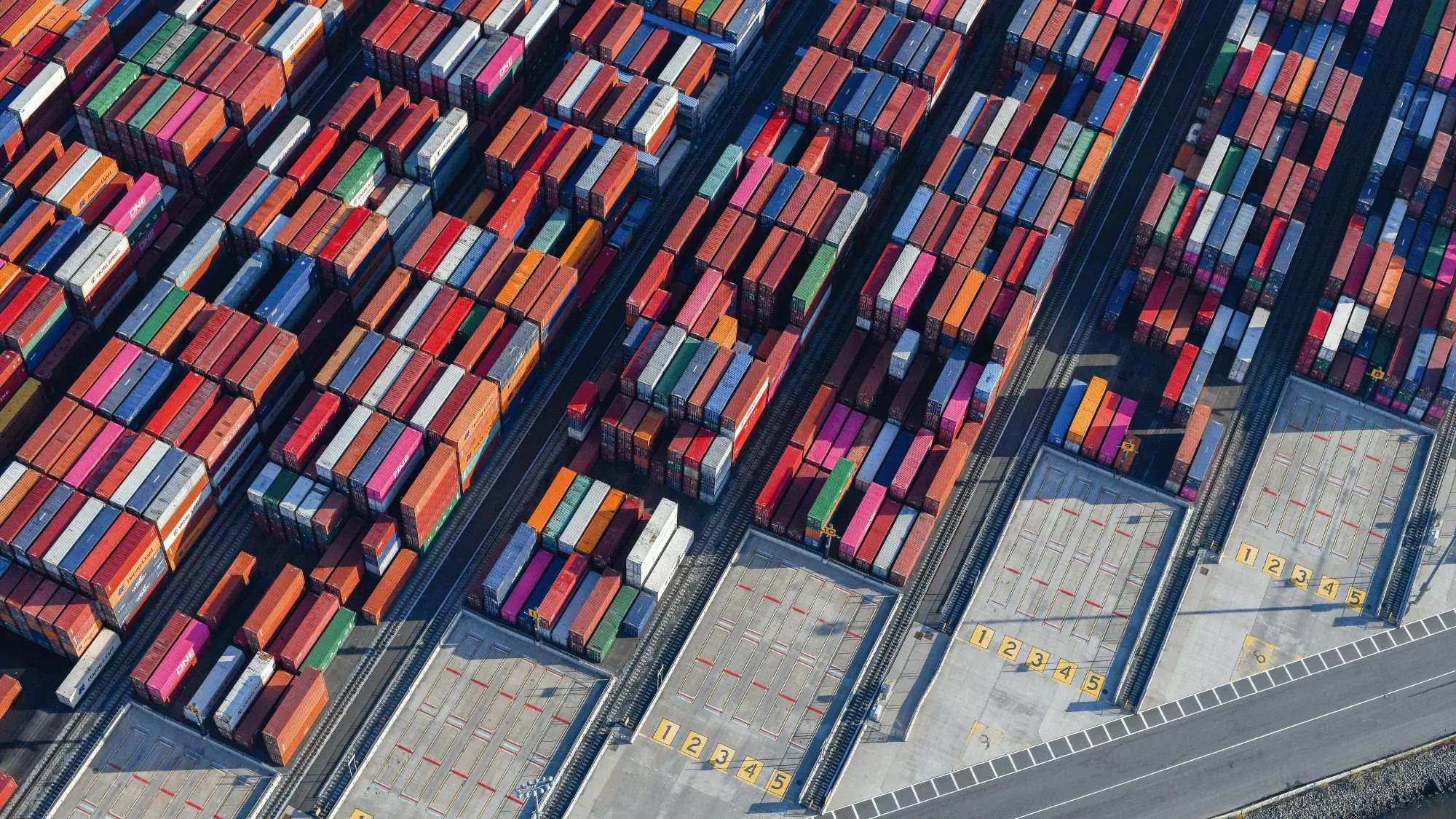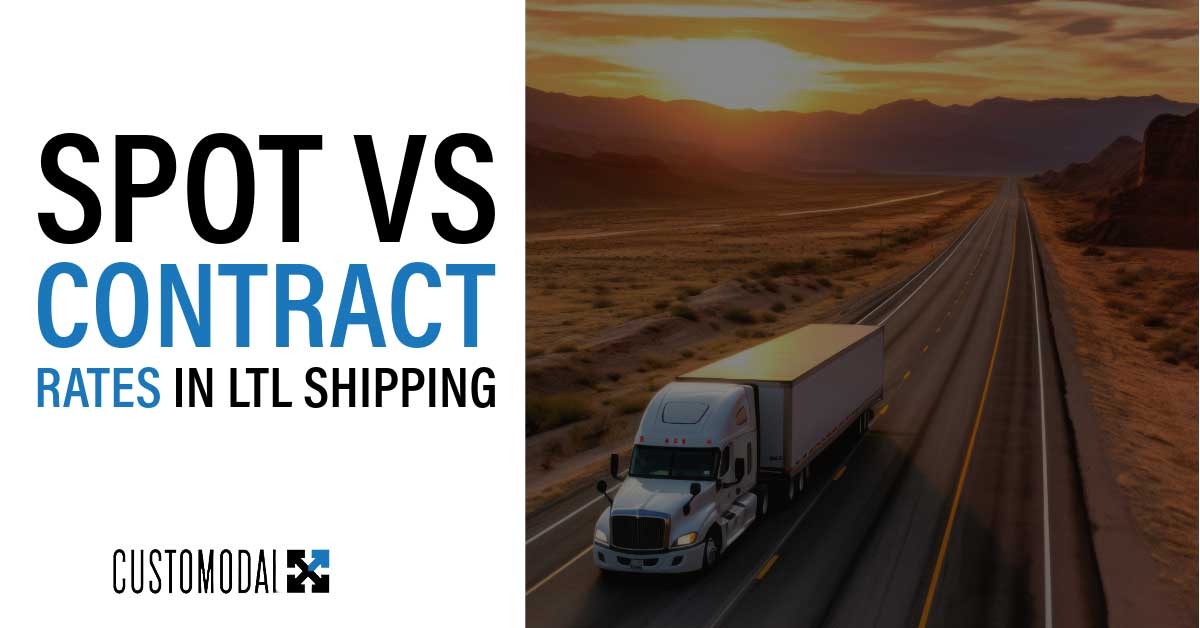
Unforeseen disruptions, razor-thin margins, and the constant pressure for greater efficiency are the daily realities for manufacturing operations. Optimizing transportation, predicting demand accurately, and minimizing costly delays aren't just goals–they're imperatives for staying competitive.
Traditional methods often fall short in the face of this complexity, leaving organizations searching for a decisive edge. The ability to anticipate challenges and proactively optimize operations is no longer a luxury but a necessity for sustained success in the demanding world of industrial supply chains.

AI Applications in Your Logistics Ecosystem
For manufacturing professionals, AI isn't about abstract theories; it's about concrete tools that solve real-world problems. This involves sophisticated systems capable of analyzing the vast datasets inherent in your supply chain, from historical shipping patterns and real-time transportation data to market trends and external factors, to deliver actionable insights.
Consider the immediate applications:
Advanced Route Optimization
Traditional route optimization, based on static data, often falters against real-world complexities like traffic, weather, and road closures. AI-powered advanced route optimization dynamically adjusts routes using real-time data–live traffic, granular weather, and road closures. Imagine a fleet management system where AI reroutes vehicles around congestion, saving fuel and ensuring timely deliveries.
This dynamic adaptation enhances speed and reliability, directly impacting customer satisfaction and production schedules. Seamless integration with modern Transportation Management Systems (TMS) allows logistics managers to leverage AI without complex implementations, optimizing routes in the background for real-time visibility and control.
Predictive ETAs
Precise timing is critical in manufacturing. Traditional Estimated Times of Arrival (ETAs) often lack the accuracy needed for optimal production scheduling. Predictive analytics, powered by AI, analyzes historical shipping data and real-time conditions to provide far more reliable delivery timeframes.
Consider a manufacturing plant awaiting critical components; an AI-powered ETA system provides a precise delivery window by analyzing vessel tracking, weather, and port congestion, enabling optimized production and reduced downtime. This proactive planning, enabled by AI, surpasses the limitations of static ETAs.
Communication Automation
Routine communication tasks, like shipment status updates, consume significant logistics resources. AI-powered logistics automation handles these tasks automatically, integrating with TMS platforms to provide real-time updates to stakeholders.
For example, an AI system sends automated notifications at key shipment milestones. This reduces the administrative burden on staff, freeing them for strategic tasks and enhancing customer service through proactive information sharing. The integration of AI into TMS communication workflows ensures efficient information flow, improved transparency, and reduced manual effort.
AI-Powered Demand Forecasting
Accurate demand forecasting is the bedrock of efficient manufacturing logistics. Overestimating demand leads to costly overstocking and potential waste, while underestimating can result in production bottlenecks and missed sales opportunities. Traditional forecasting methods often rely on historical averages and simplistic trend analysis, struggling to capture the nuances of fluctuating market conditions and external influences.
AI algorithms can analyze vast and diverse datasets, far beyond what human analysts can process. This includes years of historical sales data, seasonal patterns, macroeconomic indicators, competitor activities, and even less conventional data sources like social media sentiment and online search trends. By identifying complex correlations and patterns within this data, AI can generate demand forecasts with a level of precision previously unattainable.
Consider a manufacturing company that produces seasonal goods. An AI-powered forecasting system analyzes historical sales data from past seasons, combines it with current economic forecasts and social media buzz around their product, and predicts an unusually high surge in demand for the upcoming season.
This early warning allows the company to proactively adjust its production schedules, secure sufficient raw materials, and optimize inventory levels to meet the anticipated demand without incurring excess storage costs or facing stockouts that could impact customer satisfaction and revenue. This predictive capability transforms demand forecasting from a reactive exercise into a strategic advantage.
Smart Logistics, Real Results: How AI Fuels a Stronger Supply Chain
Building on the practical AI applications within your logistics ecosystem–from dynamic route optimization and precise predictive ETAs to automated communication and advanced demand forecasting–the adoption of these technologies yields significant, interconnected benefits for logistics operations:
-
Cost savings: The efficiencies gained through AI directly translate to reduced expenditures. Optimized routes minimize fuel consumption and vehicle wear. Accurate ETAs mitigate detention and demurrage charges. Automated communication lessens administrative overhead. Precise demand forecasting prevents costly overstocking and reduces the risk of lost sales due to insufficient inventory.
-
Enhanced operational agility and efficiency: AI empowers a more responsive and streamlined supply chain. Dynamic route adjustments allow for real-time adaptation to disruptions. Accurate ETAs facilitate better resource allocation and production scheduling. Automated communication accelerates information flow. Predictive forecasting enables proactive adjustments to production and inventory, leading to smoother operations and reduced bottlenecks.
-
Improved decision-making and risk mitigation: The actionable insights derived from AI-powered data analysis enable more informed strategic decisions. Predictive ETAs allow for proactive management of potential delays. Demand forecasting anticipates market shifts, minimizing the risks of stockouts or excess inventory. This foresight enhances the overall resilience and stability of the supply chain.
-
Elevated customer satisfaction: The direct impact of AI on service reliability is significant. More accurate ETAs and proactive communication enhance transparency and build trust with customers. Efficient logistics operations, driven by AI, ensure timely deliveries and contribute to a positive customer experience, fostering stronger, longer-term relationships.
-
Increased resource optimization: AI goes beyond simple efficiency, providing the insights needed for truly smart resource management. By dynamically optimizing routes, you reduce fuel costs and wear on your fleet. Furthermore, AI-powered demand forecasting ensures production aligns closely with anticipated needs, minimizing waste and maximizing the value of your inventory.
Implementing AI isn't just about fixing individual problems; it's about creating a smarter, more agile backbone for your entire supply chain. The result? You're not just saving money here and there–you're building a logistics engine that's better equipped to handle whatever the market throws your way, ultimately making your whole operation more competitive.
Build a Future-Ready Supply Chain with AI
The integration of AI into logistics isn't a fleeting trend; it's the evolution of a smarter, more resilient, and ultimately more competitive supply chain. By leveraging the power of predictive analytics, automation, and intelligent optimization across your core logistics functions, you move beyond simply reacting to challenges and begin to anticipate and overcome them with unprecedented agility. The benefits–from cost reductions and enhanced operational efficiency to improved decision-making and elevated customer satisfaction–represent a fundamental shift in what's possible within your logistics framework.
Are you ready to move beyond the limitations of traditional logistics and build a supply chain that proactively drives your business forward? At Customodal, we understand the intricacies of modern manufacturing logistics and provide the expertise and technology to help you unlock this transformative potential. Let us partner with you to architect a logistics ecosystem that's not just keeping pace, but setting the pace for efficiency and resilience in your industry.
Discover how a strategic approach to technology can revolutionize your supply chain.





